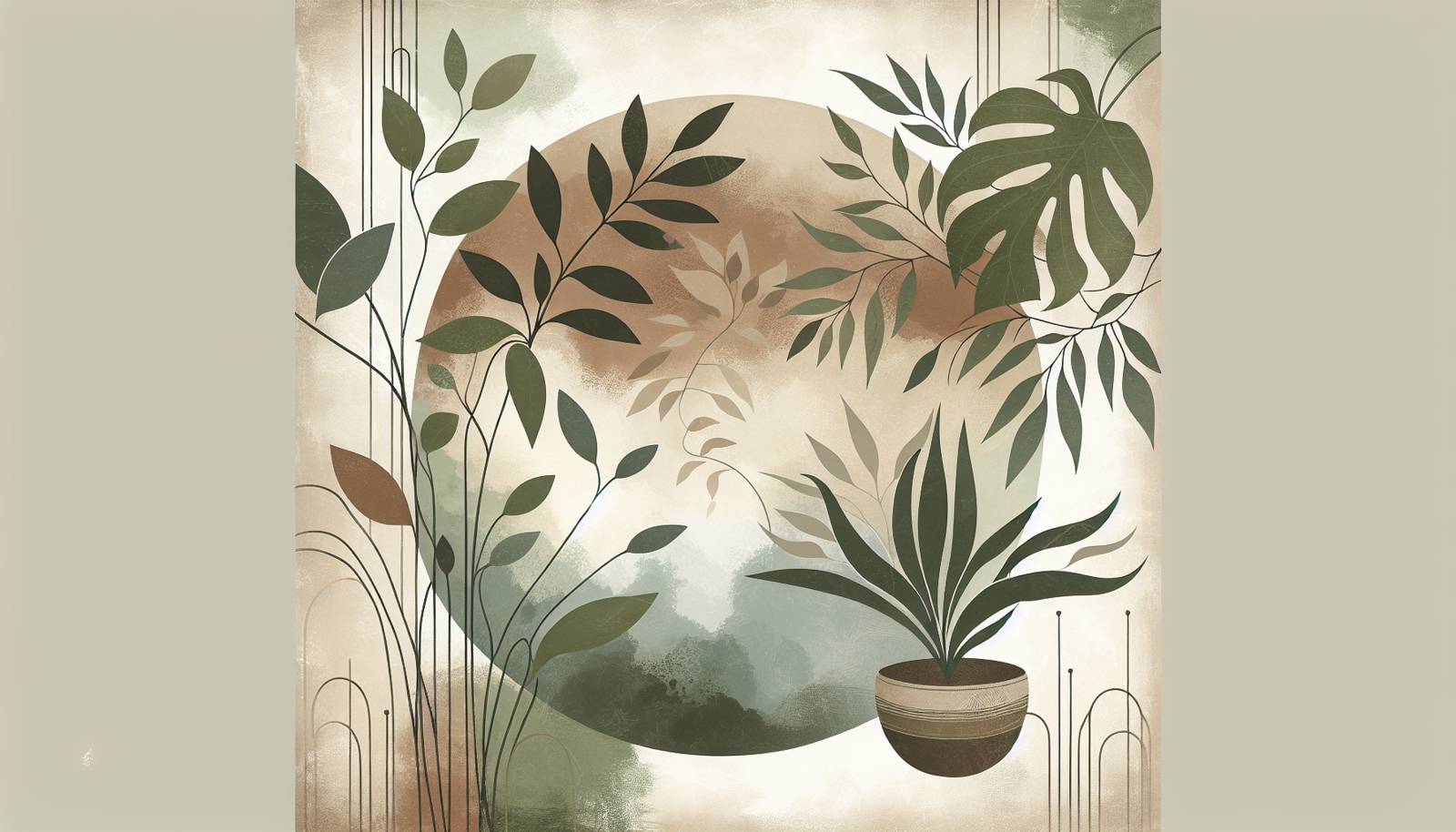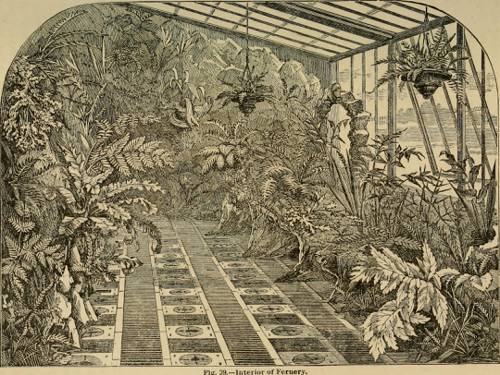
FAQ About Chemical-Free Indoor Plant Care

What are the benefits of using chemical-free methods for indoor plant care?
Using chemical-free methods for indoor plant care is beneficial because it promotes a healthier environment by reducing exposure to toxic substances. This is particularly important in enclosed spaces where chemicals can build up over time. Additionally, organic methods can improve plant health by fostering beneficial soil microbes and reducing the risk of chemical burns to plants.

How can I naturally fertilize indoor plants without chemicals?
Natural fertilizers for indoor plants can include compost, worm castings, or homemade fertilizers from kitchen scraps like banana peels or eggshells. These natural options provide essential nutrients and help maintain healthy soil structure. Simply mix these materials into the soil or soak them in water to create a nutrient-rich tea for watering plants.

What are some effective natural pest control methods for indoor plants?
Natural pest control for indoor plants can include introducing beneficial insects like ladybugs or using neem oil, a natural insecticide derived from the neem tree. Additionally, planting pest-repelling herbs like lavender or basil nearby can deter unwanted insects. Regularly cleaning leaves with soapy water can also help control pests.

Can I use essential oils in chemical-free plant care?
Yes, essential oils such as peppermint or tea tree oil can be used in chemical-free plant care as natural pest deterrents. They can be diluted with water and sprayed onto plant leaves to repel insects. However, it's important to test any mixture on a small area first, as some plants may be sensitive to oils.

Are there any natural ways to clean indoor plant leaves?
To clean indoor plant leaves naturally, you can use a damp cloth with water or a mixture of water and a bit of mild soap. Another method is to gently spray plants with a solution of water and vinegar. This helps remove dust and prevents pests without using harsh chemicals.

What are signs that my indoor plants might need organic fertilization?
Signs that indoor plants might need organic fertilization include yellowing leaves, slow growth, and lower leaf drop. These symptoms suggest a nutrient deficiency, which can often be remedied with natural fertilizers that provide essential elements like nitrogen, phosphorus, and potassium.

How often should I use natural fertilizers on indoor plants?
The frequency of applying natural fertilizers depends on the type of fertilizer and the specific plant's needs. Generally, applying a natural fertilizer every few weeks during the growing season is sufficient. It's essential to follow specific product guidelines or consult care instructions for the plant species.

How can compost be used in indoor plant care?
Compost can be used in indoor plant care as a soil amendment, adding nutrients and improving soil structure. It can be mixed directly into potting soil before planting or added as a top dressing. Compost tea, a nutrient-rich liquid made from steeping compost in water, can also be used to water plants.

Can indoor plants benefit from homemade fertilizers?
Indoor plants can significantly benefit from homemade fertilizers, which provide essential nutrients without harsh chemicals. Fertilizers made from kitchen scraps like banana peels or coffee grounds release nutrients slowly, feeding plants steadily. These fertilizers are eco-friendly and can be made from waste materials, promoting sustainability.

What types of indoor plants respond well to chemical-free care?
Most indoor plants can thrive with chemical-free care, but some particularly responsive types include spider plants, snake plants, and pothos. These hardy plants can tolerate a variety of conditions and typically benefit from the rich, organic nutrients provided by natural care methods.

How does vinegar help in cleaning plant leaves?
Vinegar can help clean plant leaves by acting as a natural disinfectant. A diluted solution of vinegar and water can remove dust, dirt, and some pests from leaf surfaces. However, it should be used sparingly, as excessive vinegar can lower soil pH and potentially harm plants.

Is neem oil safe for all indoor plants?
Neem oil is generally safe for most indoor plants and is an effective natural pesticide. However, it's crucial to test neem oil on a small area before full application, especially on sensitive plants like ferns or succulents. Always dilute according to product instructions to avoid phytotoxicity.

What is compost tea, and how is it used for indoor plants?
Compost tea is a nutrient-rich liquid made by steeping compost in water. It's used as a natural fertilizer to enhance plant growth and health. To use, water the indoor plants with the liquid, providing a mild but effective boost of nutrients and beneficial microorganisms to the soil.

How can I make a homemade insect spray for indoor plants?
A simple homemade insect spray can be made by mixing water, mild dish soap, and neem oil or garlic extract. Spray this solution onto the affected plants to deter common pests like aphids or spider mites. Always test on a single leaf first to ensure the plant tolerates the spray well.

Can banana peels be used in indoor plant care?
Yes, banana peels can be used in indoor plant care as a natural nutrient source. They are rich in potassium and can be chopped and buried in the soil or soaked in water to create a fertilizer tea. This provides a slow-release nutrient boost for plants.

What are some common mistakes when using chemical-free methods for indoor plants?
Common mistakes include over-fertilizing with natural products, leading to nutrient burn or imbalanced soil pH. Another mistake is not properly identifying pest issues before treatment, which can result in ineffective pest control. It's important to use chemical-free methods appropriately and in moderation for the best results.

Are there natural ways to increase humidity for indoor plants?
Increasing humidity naturally can be achieved by grouping plants together, placing water trays near plants, or using a pebble tray filled with water under plant pots. Humid air promotes healthy growth in moisture-loving indoor plants like ferns and orchids without the need for chemical humidifiers.

How can eggshells be used in indoor plant care?
Eggshells can be crushed and added to the soil as a natural source of calcium, which helps strengthen plant cell walls. They can also be steeped in water overnight to create a calcium-rich liquid that can be used to water plants. This method of recycling kitchen waste is environmentally friendly and cost-effective.

What role do beneficial insects play in chemical-free indoor plant care?
Beneficial insects, like ladybugs and lacewings, can help control pest populations naturally without chemicals. They prey on common indoor plant pests such as aphids and spider mites. Introducing these insects to an indoor garden can maintain pest control and promote a healthy, balanced ecosystem.

Can I use coffee grounds for indoor plant care?
Coffee grounds can be used as a nitrogen-rich amendment for indoor plants, helping to improve soil structure and drainage. However, they should be used in moderation, as too much can compact soil or alter its pH balance. It's best to mix used coffee grounds into compost or let them decompose slightly before adding directly to plant soil.
